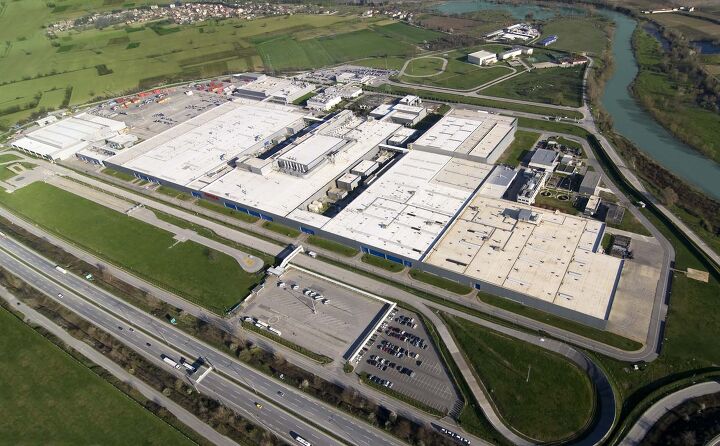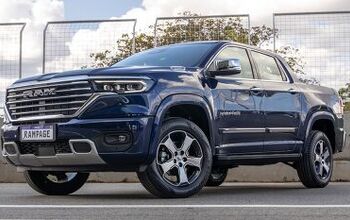Toyota Flees Strong Yen, Shifts Production To Europe

The slow exodus from Japan continues. Driven out by the strong yen, which turns exports into a money loser, Toyota is building out capacities abroad. Toyota will invest €265 million ($354 million) into its existing plants in Turkey and the UK. 1,900 new jobs will be created, 400 in Turkey, 1,500 in the UK.
According to the plan,production of the C-segment hatchback Auris will be concentrated version of its European-produced C-segment vehicles (petrol, diesel and hybrid) will be consolidated at their Burnaston plant (TMUK) in Derbyshire. Currently, the Auris is produced both in Turkey and the UK.
Toyota Motor Manufacturing Turkey (TMMT) in Sakarya, will not lose work, in the contrary. Along the Toyota Verso, the plant will build a new, unnamed compact sedan.
This change of production strategy is set to take place within the next two years.

Bertel Schmitt comes back to journalism after taking a 35 year break in advertising and marketing. He ran and owned advertising agencies in Duesseldorf, Germany, and New York City. Volkswagen A.G. was Bertel's most important corporate account. Schmitt's advertising and marketing career touched many corners of the industry with a special focus on automotive products and services. Since 2004, he lives in Japan and China with his wife <a href="http://www.tomokoandbertel.com"> Tomoko </a>. Bertel Schmitt is a founding board member of the <a href="http://www.offshoresuperseries.com"> Offshore Super Series </a>, an American offshore powerboat racing organization. He is co-owner of the racing team Typhoon.
More by Bertel Schmitt
Latest Car Reviews
Read moreLatest Product Reviews
Read moreRecent Comments
- Ltcmgm78 It depends on whether or not the union is a help or a hindrance to the manufacturer and workers. A union isn't needed if the manufacturer takes care of its workers.
- Honda1 Unions were needed back in the early days, not needed know. There are plenty of rules and regulations and government agencies that keep companies in line. It's just a money grad and nothing more. Fain is a punk!
- 1995 SC If the necessary number of employees vote to unionize then yes, they should be unionized. That's how it works.
- Sobhuza Trooper That Dave Thomas fella sounds like the kind of twit who is oh-so-quick to tell us how easy and fun the bus is for any and all of your personal transportation needs. The time to get to and from the bus stop is never a concern. The time waiting for the bus is never a concern. The time waiting for a connection (if there is one) is never a concern. The weather is never a concern. Whatever you might be carrying or intend to purchase is never a concern. Nope, Boo Cars! Yeah Buses! Buses rule!Needless to say, these twits don't actual take the damn bus.
- MaintenanceCosts Nobody here seems to acknowledge that there are multiple use cases for cars.Some people spend all their time driving all over the country and need every mile and minute of time savings. ICE cars are better for them right now.Some people only drive locally and fly when they travel. For them, there's probably a range number that works, and they don't really need more. For the uses for which we use our EV, that would be around 150 miles. The other thing about a low range requirement is it can make 120V charging viable. If you don't drive more than an average of about 40 miles/day, you can probably get enough electrons through a wall outlet. We spent over two years charging our Bolt only through 120V, while our house was getting rebuilt, and never had an issue.Those are extremes. There are all sorts of use cases in between, which probably represent the majority of drivers. For some users, what's needed is more range. But I think for most users, what's needed is better charging. Retrofit apartment garages like Tim's with 240V outlets at every spot. Install more L3 chargers in supermarket parking lots and alongside gas stations. Make chargers that work like Tesla Superchargers as ubiquitous as gas stations, and EV charging will not be an issue for most users.
































Comments
Join the conversation
I find it odd that Japan hasn't devalued it's currency. Something is going on here, I'm not sure we are getting the full story on this. Something doesn't make sense to me.
Didn't the Diet just spend $56B DOLLARS last year to prop up the yen? Oh, that's right - that was before the earthquake. I'm no economist (thank God!), but the hundreds of billions that are being spent to repair and upgrade after the earthquake/tsunami must be having an affect on the Japanese economy. The big multinationals must see the writing on the wall and are getting out of dodge while they still can.